Premium Only Content
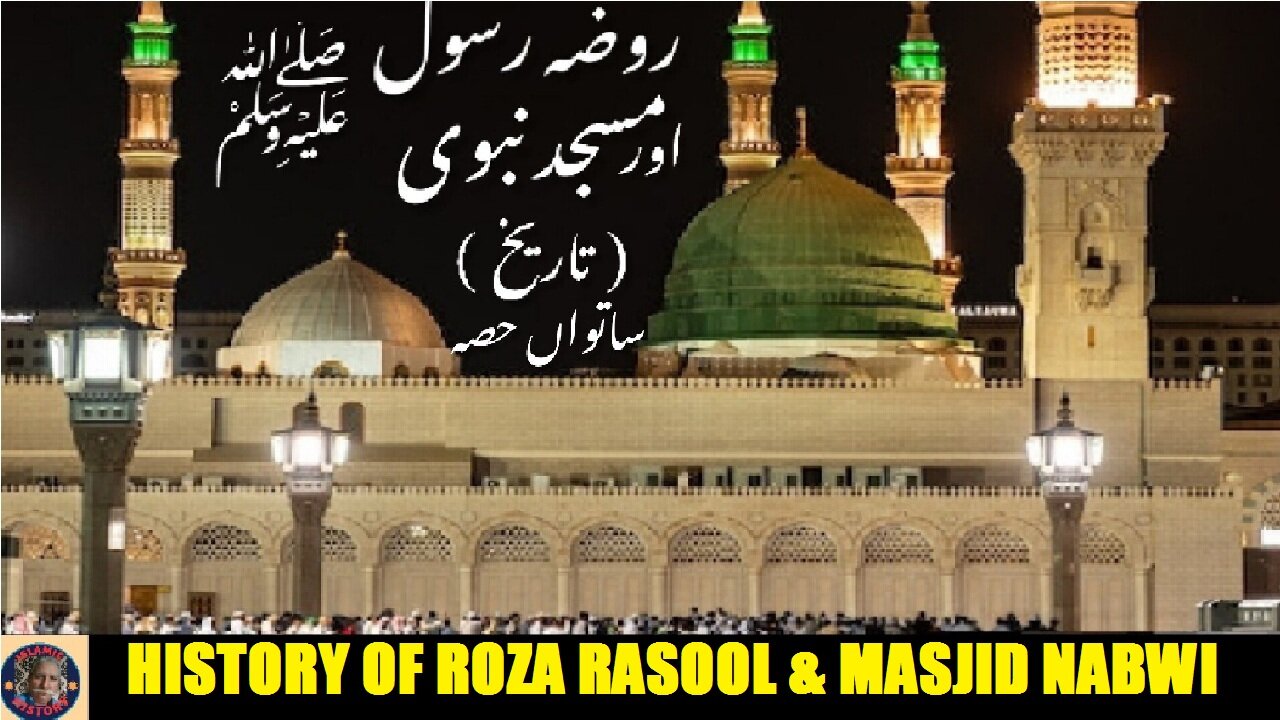
Part-7 History of Roza Rasool and Masjid Nabwi روضہ رسول اور مسجد نبوی صلی اللہ علیہ وسلم کی تاریخ
@islamichistory813 #TombOfTheProphetMuhammad #SacredChamber #IslamicHistory, Madina
Part-7
History of Roza Rasool and Masjid Nabwi (Peace be upon Him)
Asslamoalaikum sisters brothers friends and elders, We are contineu going to start describing from where yesterday we was stop describing the Tomb (Roza Rasool) of the Prophet Muhammad SAW (The Sacred Chamber, its is seventh part of topic.
His head was directed towards the west, and his blessed face was turned towards the Qibla. His feet were directed eastwards.
Death and Burial of Abu Bakr al-Siddiq
Abu Bakr al-Siddiq I was struck by fever on 7th Jumada al-Akhirah 13 AH (634 CE). He passed away 15 days later on 22 Jumada al-Akhirah 13 AH (634 CE). He died at the age of 63, the same age as the Prophet ? was when he passed away. His caliphate lasted two years, three months and 10 days.
Aisha J, his daughter and the wife of the Prophet ? narrates:
Abu Bakr’s sickness first began when he took a full ritual bath on a cold day and developed a fever. He did not go out to pray for fifteen days, and he instructed Umar to lead the prayer. They used to visit him, and Uthman was the one who visited him most frequently during his sickness. When his sickness grew worse, he was asked, ‘Shall we call the doctor for you?’ He said, ‘He has already seen me’, and he said, ‘I do what I want.’18
He gave instructions that he was to be washed by his wife Asma bint Umays I and that he was to be buried next to the Prophet ?. He asked his daughter Aisha J what the day was on which the Prophet ? passed away, to which she replied that it was a Monday. He enquired about what day it was that particular day, to which she replied that it was also a Monday. Upon hearing this, he affirmed that he would not live beyond Monday and gave instruction to be buried that same day.
The last words that Abu Bakr spoke were the words of Allah:
…cause me to die a Muslim and join me with the righteous. (Qur’an 12: 101)
He was washed by his wife and enshrouded in two garments in accordance with his instructions. He was buried at night, between the time of Maghrib and Isha prayers, beside the Prophet ? in Aisha’s J room, with his head in line with blessed shoulders of the Messenger of Allah ?. Like the Prophet ?, his feet were directed eastwards, his head was directed westwards, and his face was turned towards the Qibla.
The funeral prayer was offered by his successor, Umar ibn al-Khattab I. Umar, Uthman, Talhah, and Abu Bakr’s son Abdul Rahman M went down into his grave to bury him. The niche was on the edge of the grave of the Prophet ?.
Death and Burial of Umar ibn al-Khattab
Umar ibn al-Khattab I was martyred on a Wednesday, the 26th or 27th of Dhu al-Hijjah 23 AH/644 CE. Like the Prophet ? and his predecessor, Abu Bakr al-Siddiq, he was 63 years old when he passed away. About his age, Jareer al-Bajali I said:
I was with Mu’awiyah and he said: ‘The Messenger of Allah ? died when he was 63 years old old, Abu Bakr died when he was 63 years old and Umar was killed when he was 63 years old.’19
He was caliph for little more than 10 and a half years. He was murdered during the Fajr prayer by Piruz Nahavandi, also known as Abu Lu’lu’ah. Abu Lu’lu’ah was the Persian slave of al-Mughirah ibn Shu‘bah I and followed the Magian (Zoroastrian) religion.
Abu Rafi‘ I, a companion of the Prophet ?, narrates the incident:
Abu Lulu was a slave of al-Mughirah ibn Shu’bah, and he used to make grindstones. Al-Mughirah used to deduct four dirhams from him every day. Abu Lulu met Umar and said, ‘O Ameer al-Mu’mineen, al-Mughirah is taking too much from me; ask him to reduce it.’ Umar said, ‘Fear Allah and be good to your master.’ Umar intended to speak to al-Mughirah and ask him to reduce it, but the slave got angry and said, ‘His justice extends to all of them except me.’ So he planned to kill him. He made a two headed dagger, sharpened it and put poison on it, then he showed it to al-Hormuzan, and asked, ‘What do you think of this?’ He said, ‘I do not think you will strike anyone with it but you will kill him. ’ Then Abu Lulu waited for an opportunity to strike Umar. He came to him at the time of Fajr prayer and stood behind Umar. As was his habit, when the iqamah for prayer was given Umar spoke to the people and told them to straighten their rows, then when he said the takbeer, Abu Lulu stabbed him in the shoulder and then in his side, and Umar fell down.20
Amr ibn Maymun I, another companion of the Prophet ?, further narrates his version of events:
I was standing with no one between me and him but Abdullah ibn Abbas on the day when he was struck. When he passed between the rows, he would say, ‘Make (your rows) straight,’ and when they were straight, he would go forward and say takbeer, and he would recite Surah Yusuf or an-Nahl, or a similar Surah in the first rak’ah, until all the people had gathered. No sooner had he said the takbeer, that I heard him say, ‘The dog has killed or devoured me!’ when he was stabbed. The foreigner tried to flee, wielding a two-edged knife, and he did not pass by anyone, right or left, but he stabbed him. He stabbed thirteen people, of whom seven died. When one of the Muslim men saw that, he threw a cloak over him and when the foreigner realised that he had been caught, he killed himself.
Umar took the hand of Abdur Rahman ibn Awf and made him go forward to lead the people in prayer. Those who were immediately behind Umar saw what had happened; those who were in other parts of the mosque did not realise. Abdur Rahman led them in a brief prayer, and when they finished, Umar asked, ‘O Ibn Abbas, find out who killed me.’ He went around for a while, then he came and said, ‘It was the slave of al-Mughirah.’ He asked, ‘The craftsman?’ He said, ‘Yes.’ He said, ‘May Allah curse him, I told his master to treat him well. Praise be to Allah Who has not caused my death to be at the hands of a man who claimed to be a Muslim.’
He was carried to his house, and we set off with him, and it was as if no calamity had ever struck the people before. Some nabeedh was brought to him and he drank it, but it came out from his stomach. Then some milk was brought to him and he drank it, but it came out through his wound. They realised that he was dying, so we entered his house and the people came and started praising him.
So dear friends, remaining history will be described from here in next video part-8. Allah Hafiz
-
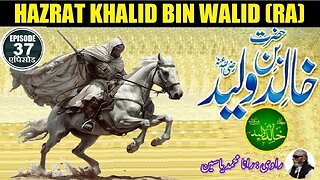 11:10
11:10
ISLAMIC HISTORY
1 day agoKhalid bin Walid (RA) Islamic Warrior Episode 37 خالد بن ولید رضی اللہ عنہ اسلامی جنگجو قسط نمبر
41 -
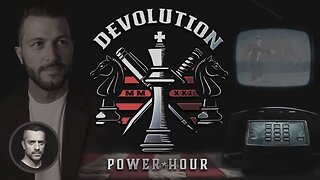 1:38:47
1:38:47
Badlands Media
1 day agoDevolution Power Hour Ep. 387: Trump, Epstein, Durham Mysteries, and North Korea Ops
77.9K20 -
 1:05:23
1:05:23
Man in America
14 hours agoSoaring Gold Exposes the Imminent Crash of the Old System w/ John Perez
39.5K7 -
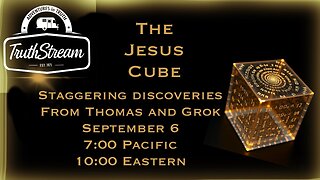 2:42:40
2:42:40
TruthStream with Joe and Scott
14 hours agoTHOMAS AND GROK: AI, Bible decodes, The JESUS Cube live 9/6 #487
25K2 -
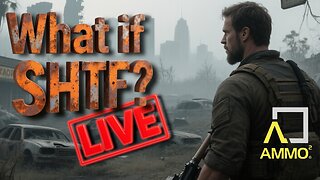 2:34:46
2:34:46
BlackDiamondGunsandGear
8 hours agoGet Prepped / After Hours Armory / LIVE SHOW /
17K1 -
 2:01:39
2:01:39
Tundra Tactical
7 hours ago $6.38 earned🛑LIVE NOW!! This spits in the face of the Second Amendment.🛑
27.1K4 -
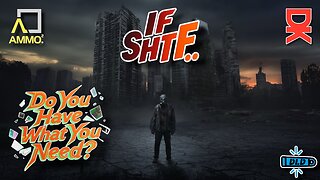 2:34:46
2:34:46
DLDAfterDark
6 hours ago $1.64 earnedIt's SHTF! Do You Have What You Need?? Let's Review Items & Priorities
19.1K4 -
 28:58
28:58
Stephen Gardner
7 hours ago🚨Explosive allegations: Rosie O’Donnell connects Trump to Epstein scandal!?
33.9K61 -
 LIVE
LIVE
SavageJayGatsby
2 days agoSpicy Saturday | Let's Play: Grounded
507 watching -
 2:06:27
2:06:27
MattMorseTV
8 hours ago $50.92 earned🔴Vance just went SCORCHED EARTH.🔴
128K180